At American Dreams: A Festival, I was asked to participate in “A Prayer for the American Dream.” It was a gorgeous night in Red Rock Canyon, and here’s what I said:
“I have a long history with prayer. I was taught to pray probably before I could talk, and some of my earliest memories are of praying: at meals, at bedtime, on waking, when I heard the whine of an ambulance, when I overheard a curse, when I was old enough to curse on my own.
In my childhood family, the prayer of choice was the rosary. If you’re not familiar with it, it’s a Roman Catholic devotion, a kind of meditation, which involves saying certain prayers over and over. There are prayers at the beginning and the end, but the heart of this devotion are the five decades – ten recitations of the Hail Mary, followed by an Our Father, followed by a Gloria Patri – and all of those repeated five times in a row. Sixty-six prayers in all. Many people use beads to help them keep track.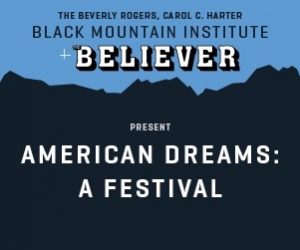
From the age of about seven, my Lenten resolutions were 1) no sweets (this was hard for me, but seemed like a reasonable choice to my parents), and 2) a rosary every night (which I liked well enough, though my parents didn’t think it wise for a young child to take on a devotion so long). I don’t know how old I was before I made it through a rosary on my own. Most nights, I fell asleep on my knees, chin on the edge of the bed, or more rarely, toppled straight over sideways in my polyester nightgown.
My dad, who was a lovely man – intellectual and open-minded, gentle and kind – my dad had the daily practice of saying rosaries. One each for his six children, his wife, his mother, and anyone else he thought might need one that day.
That’s a lot of rosaries. He had a job. He had six kids. He learned how to work the prayer into his regular life. My dad didn’t need beads. He could talk, fly fish, change a diaper, throw a ball, solve a math problem, and of course, drive, while saying the rosary. Most of the time, he did it silently, but in the car, he sometimes kept up a low murmur of prayer.
It never occurred to me that there was anything unusual about someone spending his entire life in prayer; the first time I even remember noticing it as a distinct quality was the day my husband met my parents. I had been living in France, and 23 years old, I came back with a Socialist, atheist Jew, fifteen years my senior. I’m not sure what my parents thought, because they accepted my choice as mine to make. Anyway, we must have driven somewhere together – my parents, my husb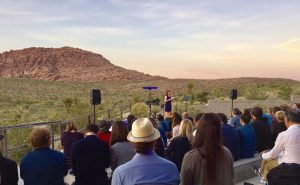 and, myself – and that night, Bill asked me what my dad was doing when he murmured in the car. When I told him, he said “Christ, that’s spooky.”
and, myself – and that night, Bill asked me what my dad was doing when he murmured in the car. When I told him, he said “Christ, that’s spooky.”
It turns out that not everyone grows up with the murmur of someone praying as the heartbeat to their days.
My father didn’t have a father. Shortly before my dad’s second birthday, his father died – after trying to contain a sulfur fire in The Original, a deep earth mine in Butte, Montana.
The story of my grandfather’s death played large in my childhood, even though my father had no memories of it. Alec McBride had been lucky to make it out of the mine the night, but he had waited outside on a freezing winter night, gasping for air with smoke-damaged lungs. He died slowly over many days, with his young immigrant wife and his baby beside him. As happens sometimes, he rallied just before he died, and my grandmother believed they were saved, but he was gone the next morning, on December 13.
And just before Christmas, a messenger came to the house, and asked if anyone was going to make the last layaway payment: on a silver pitcher for my grandmother and a little wagon for a boy not quite two. There was no money to make that payment, to bring home these last gifts to his wife or his son. All my life, I have looked at wagons, and remembered the young miner, the wife, the little boy – and a world in which not even that one payment was possible.
My grandfather died young near a mine in Butte, Montana. My great-grandfather mined coal off the north edge of Vancouver Island, and deep beneath the ground, he could hear the creak and groan of ships chugging through the ocean above him. And for a while, my dad was a miner too. He worked in the Mountain Con, the first mine in North America to send men a mile inside the earth. Years later, my dad and I and my daughter – his three-year-old Jewish grandchild – stood on the metal platform on which he had once descended into that mine. There were no sides on the platform, just room for six men to stand, balancing carefully without walls to steady them, and be lowered, link by link, a mile deep.
My dad had his own terrible accident in the mine, and when he got out of the hospital, he finally gave into his mother’s dearest wish, and took his wife (my mother) and my oldest sister (then a baby) away from Montana.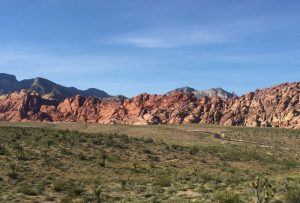
I tell these stories of my father, my grandfather, my great-grandfather, because I have been thinking about prayer and the American dream. My dad survived many a narrow miss as a child – when his dog was swept down into a collapsed mine that had formed a pool in which they were playing, when he hopped trains and worked field jobs all over the Pacific Northwest as a twelve-year-old boy, in that mining accident when he was saved by an old boot that ripped before a runaway ore car could pull him down a deep shaft. He also suffered his whole life with a chronic, life-changing illness. When he was in his 50’s, a doctor explained that his condition was common among people who had gone without sufficient food in childhood.
My dad was able to leave the mines and go to college because his mother had forged the date on his birth certificate, and then persuaded the local eye doctor to lie about his vision, so that he could enlist in the Army on his 17th birthday and ship off to the end of WWII. Then, if he returned, he could use the GI bill to go to college. It worked out that way for him, and with that one opportunity – not so easily chosen or taken – this once hungry child of a fallen miner sent six kids to college, all of whom became professionals.
I have two children – my son is a junior at Yale, and my daughter is a law student at Stanford – and here is the story of their four grandparents.
One grandmother was orphaned at five, and dropped out of school in the sixth grade to work in her immigrant uncle’s shoe shop.
One grandfather was the first member of his family born in the United States, after his parents and older siblings emigrated. Years later, every Jewish member of their village – Salakas in what is now Lithuania – was shot by Nazi soldiers.
The other grandmother was the daughter of a Basque woman born in Spain – the only dark-skinned foreigner in the small northern Washington town where they lived.
The fourth grandparent was my father.
The American Dream. It belongs to my children, to me, to my parents. And it took so little to change generations of history.
This spring, my daughter is working full time on human rights issues. Tomorrow, she’ll fly half way around the world to meet with some of the poorest people on earth. My son studies chemistry, and works in a lab where cancer drugs are being designed; he hopes to turn this experience into his career.
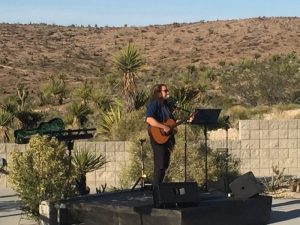 Not everyone was interested in giving their Basque grandmother, their Jewish grandfather, their poor grandparents, a shot at a new life. And yet, the investment in those grandparents was really so small – it was Apple stock in 1997 – and the return infinitely larger than the good that just two of their grandchildren might have the chance to do in this world.
Not everyone was interested in giving their Basque grandmother, their Jewish grandfather, their poor grandparents, a shot at a new life. And yet, the investment in those grandparents was really so small – it was Apple stock in 1997 – and the return infinitely larger than the good that just two of their grandchildren might have the chance to do in this world.
There are those who don’t want to make this investment now. Who imagine that there isn’t enough – not enough in this country that stretches between two oceans, that is rich in every possible natural resource, that has generated more wealth than any country in the history of the world, that has just 4.4% of the world’s population. There are those who think we don’t have enough for others in the world. They think we don’t even have enough for our own citizens, for families who have been here for generations, who were here before we were a country.
Our time on this earth, even if we are lucky enough to grow old, is so short. Here’s my prayer for you, for your short time. May you know that there is enough. There’s enough. Celebrate. Dance. Give in to the impulse to help another. Because we have plenty. There’s enough.
Namaste.
Note: I began this talk by reciting three prayers, the Adhan, the Shema, and the Gloria Patri.
Allahu Akba / Ashhadu anna la ila ill Allah / Ashhadu anna Muhammadan rasul Alla / Hayya alas salah / Hayya alal falah / Allahu akbar, La ilah ill Allah. God is Great / I bear witness that there is no god except the One God / I bear witness that Muhammad is the messenger of God / Hurry to the prayer / Hurry to success / God is Great / There is no god except the One God
Sh’ma Yisra’eil Adonai Eloheinu Adonai echad. / Barukh sheim k’vod malkhuto l’olam va’ed. Hear Israel, the Lord is our God, the Lord is One. / Blessed be the Name of His glorious kingdom for ever and ever.
Gloria Patri, et Filio, et Spiritui Sancto / Sicut erat in principio, et nunc, et semper, et in saecula saeculorum. Glory be to the Father, and to the Son, and to the Holy Spirit / As it was in the beginning, is now, and ever shall be, world without end.
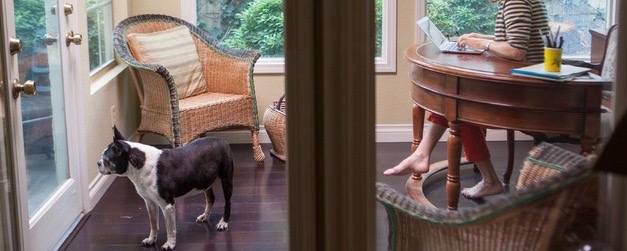
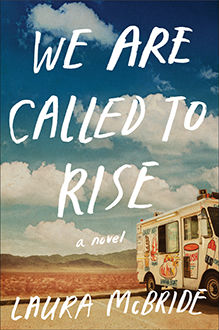
Leave a Reply